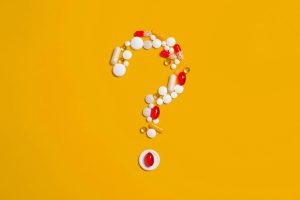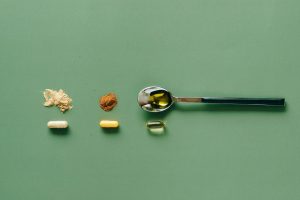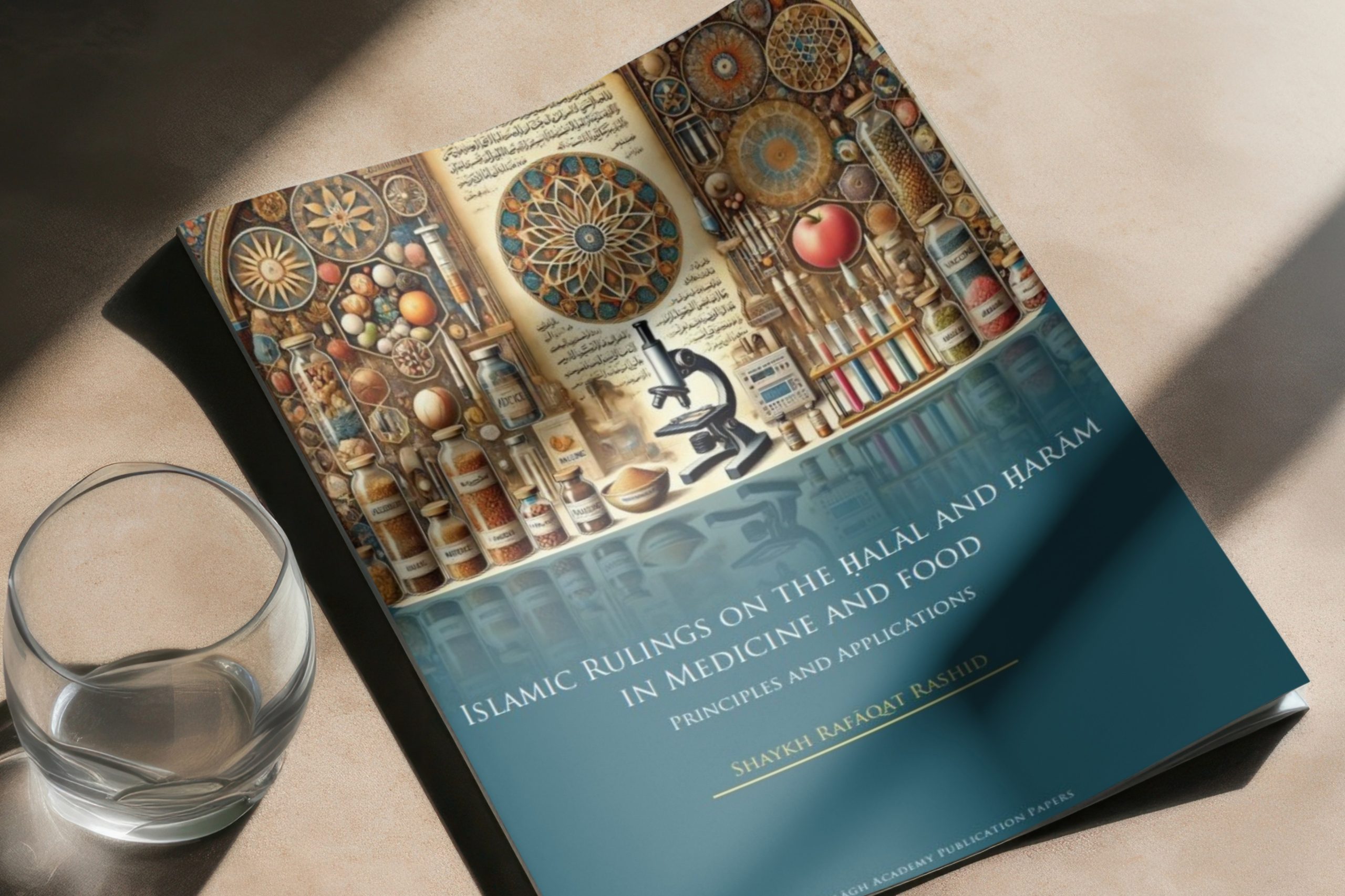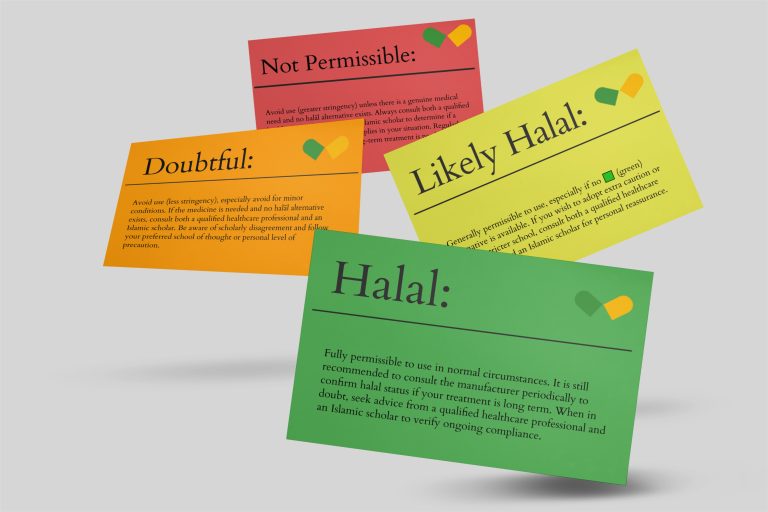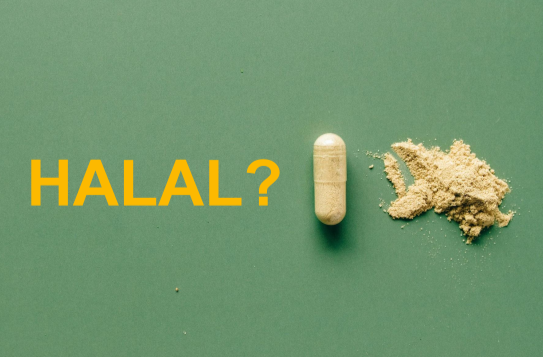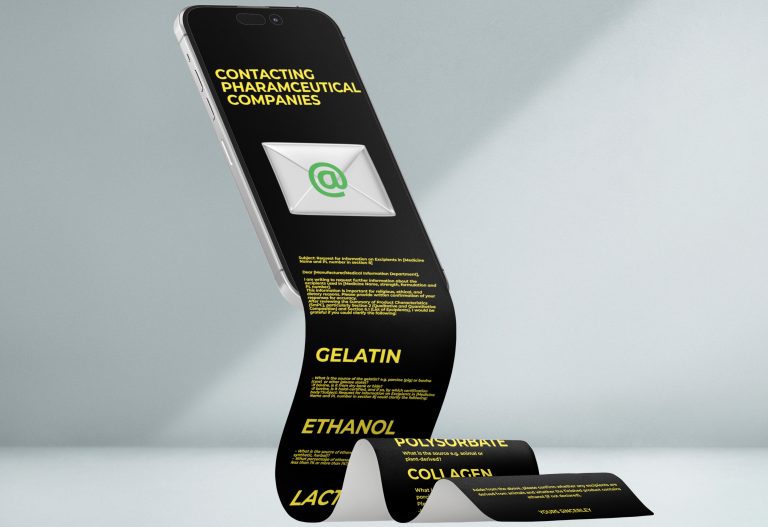Polysorbate in medicines
This resource explains the use of polysorbate in medicines and outlines the Islamic rulings on its permissibility.
What is polysorbate and how is it used in medicines?
- Polysorbate is a common inactive ingredient (excipient) used in pharmaceutical formulations.
- Its key functions include acting as a:
- solubilising agent (to help dissolve active ingredients),
- an emulsifier (to mix oil and water phases), and a
- stabiliser (to protect active ingredients, especially in biological products). 1 2
- It is found in tablets, capsules, oral solutions1, and in vaccines such as influenza and hepatitis B vaccines3 .
- Chemically, polysorbates have a fatty-acid component that can be obtained from vegetable oils or, less commonly, animal sources.
- Common vegetable sources include coconut oil, sunflower oil, and palm oil. Most polysorbates used in medicines today are from plant sources4.
- Sources include:
🕌 Islamic ruling on polysorbate
| Source | Ruling |
|---|---|
| Plant | ✅ Halal |
| Bovine (cow) Islamically slaughtered | ✅ Halal |
| Bovine (cow) non-Islamically slaughtered | ❌Haram and impure according to all four schools of thought (majority consider no evidence of istihala) |
In summary:
- Halal → polysorbate derived from plant or Islamically slaughtered cows
- Haram → polysorbate derived from tallow, which is the fat from non-Islamically slaughtered cows.5
If you are unsure about taking or using medicines containing ingredients and/or excipients from haram sources, seek guidance from a practising Muslim HCP such as a pharmacist or doctor. Alternatively, consult your local Imam or a trusted Islamic scholar, ideally one who has knowledge and expertise in the fiqh (Islamic rulings) of medicine.
💭Did you know?
Even if a medicine contains an ingredient/excipient from a haram source, it may still be permitted in certain cases. Here are three Islamic maxims (principles):
- Medical need or necessity (hajah and darurah): Under this principle, if there is a medical necessity, such as an emergency situation, or where there is a strong chance the individual’s health will deteriorate, and if no viable halal alternative is available, then it is permitted to take a medicine containing polysorbate derived from haram sources, until a viable halal alternative becomes available.
- An impermissible medicine becomes permissible if five conditions are fully met (click here to learn what the five conditions are).
- Hardship begets facility (al-mashaqqa tajlib at-taysir): Under this principle, if applying religious practice becomes too burdensome or creates hardship, then leniency can be applied to ease it (Click here to read more). If you have tried your best to seek an alternative halal medicine and it becomes too difficult for you, this principle allows you to take/use the medicine you have been prescribed/supplied.
⚠️ Important information for patients
- Always take or use your medicine(s) exactly as directed or prescribed by your healthcare professional (HCP), such as your doctor or pharmacist
- Do not stop, delay, change or alter the way you take or use your medicine(s) without first discussing it with the HCP who prescribed or supplied it to you
- Always consult your HCP if you have any questions or before making any decisions about your treatment
- For Islamic guidance, seek advice from your local Imam or a trusted Islamic scholar – ideally someone with relevant knowledge and expertise in the fiqh (Islamic rulings) of medicines
- Use the information gathered to make an informed decision together with your HCP and, if needed, your local Imam or trusted Islamic scholar.
FAQs
Disclaimer
- This resource is for educational purposes only. It does not constitute clinical, medical, or professional healthcare advice and should not replace individual clinical judgement or qualified religious guidance
- Always consult your doctor, pharmacist, or other healthcare professional regarding your own medical conditions or for advice on treatment options
- Healthcare professionals remain fully responsible and accountable for decisions made within their own scope of practice.
References and resources
- European Medicines Agency. (2018, November 19). Draft information for the package leaflet regarding polysorbates used as excipients in medicinal products for human use (Doc. Ref. EMA/CHMP/190743/2016). https://www.ema.europa.eu/en/documents/scientific-guideline/draft-information-package-leaflet-regarding-polysorbates-used-excipients-medicinal-products-human-use_en.pdf ↩︎
- Ruiz, A.J.C., Arias, A., & Ramírez, M. O. (2022). Alternative excipients for protein stabilization in biopharmaceutical formulations. International Journal of Pharmaceutics, 629, 122418. https://doi.org/10.1016/j.ijpharm.2022.122418 ↩︎
- Cabanillas, B., Akdis, C., & Novak, N. (2021). Allergy to COVID-19 vaccines: A current update. Allergy, 76(6), 1616-1630. https://doi.org/10.1111/all.14937 ↩︎
- Brovč, E. V., Mravljak, J., Šink, R., & Pajk, S. (2020). Rational design to biologics development: The polysorbates point of view. International Journal of Pharmaceutics, 581, 119285. https://doi.org/10.1016/j.ijpharm.2020.119285 ↩︎
- Rashid, R. (n.d.). Animal fats. In Islamic rulings on the ḥalāl and ḥarām in medicine and food: Principles and applications. Al Balāgh Academy Publication Papers. https://halalmed.org/wp-content/uploads/2025/10/Islamic-Rulings-on-the-Halal-and-Haram-in-Medicine-and-food-Principles-and-Applications.pdf ↩︎


